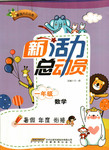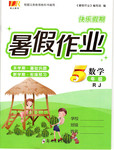题目内容
---Can your brother play tennis?---Sure. He plays____ I do.
A. as good as B. as well as C. as clear as D. as loudly as
B
【解析】
试题分析:句意:你的哥哥会打网球吗?---当然了。他和我打得一样好。A.一样好,good 是形容词,用在be动词之后;B. 一样好,well 是副词,可以修饰实意动词;C.一样清晰clear是形容词;D.一样高声,loudly是副词。据上下文可看出选B。
考点: 考查形容词的用法。

 新活力总动员暑系列答案
新活力总动员暑系列答案 龙人图书快乐假期暑假作业郑州大学出版社系列答案
龙人图书快乐假期暑假作业郑州大学出版社系列答案| A. money , B. dangerous , C. snows , D. Japanese , E. from |
【小题2】----Can you speak ________? ----Yes, but only a little.
【小题3】 Don’t play soccer in the street. It’s ________.
【小题4】In winter, it often _______.
【小题5】I spend(花费) a lot of _______ on the new computer.
---Can you guess the new Nike sports shoes?
---Yes. Maybe he asked his grandpa to pay for them, I think.
| A.where he bought | B.how he paid for |
| C.when he paid for | D.why he bought |
—Hi, Bob! Can you tell me ______?—Sure. The No.5 bus will take you there.
| A.how far is it | B.where is the zoo |
| C.how I can get to the zoo | D.which bus should I take |
When you are reading something in English, you may often meet with a new word. What’s the best way to know it?
You may look it up in the English-Chinese dictionary. It will tell you a lot about the word: the pronunciation, the Chinese meaning and how to use the word. But how can you know where the word is ? How to find it in the dictionary both quickly and correctly?
First, all the English words are arranged(安排) in the letter order. In the dictionary you can first see the words beginning with letter A, then B, C, D…. That means, if there are two words “desert” and “pull”, “desert” will be certainly before “pull”. Then if there are two words both beginning with the same letter, you may look at the second letter. Then the third, the fourth… For example, “pardon” is before “plough”, “judge” before “just”, etc. Do you understand how to look up in the dictionary? The dictionary will be your good friend. I hope you’ll use it as often as possible in your English study.
【小题1】This passage is about______.
| A.new words in writing | B.different dictionaries |
| C.the best way of reading | D.using an English-Chinese dictionary |
| A.how to pronounce the word | B.the spelling of the word |
| C.who used the word first | D.how to use the word |
| A.begins with Z | B.begins with A | C.is a short one | D.is not often used |
| A.perhaps, produce, plenty | B.straight, subject, surprise |
| C.century, center, business | D.foreign, entrance, headache |
| A.we have to use a dictionary when we read something in English |
| B.an English-Chinese dictionary can tell us everything about a word |
| C.how to look up a word in a dictionary. |
| D.all English-Chinese dictionaries are the same |